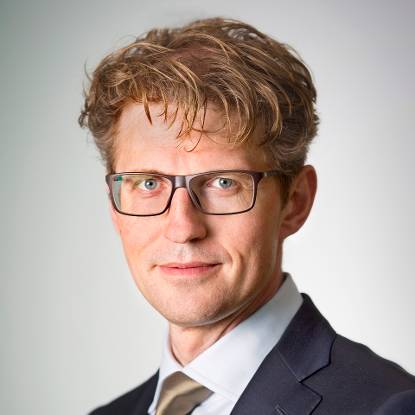White House Arctic Science Ministerial 2016

Minister of State Sander Dekker presented the Netherlands at the first White House Arctic Science Ministerial meeting. Jos Rokx, a policy maker from the ministry of Science was accompanying him. Jos Rokx summarises the speech of Sander Dekker.
Jos Rokx: 'Sander Dekker stressed the long Dutch tradition of involvement with the Arctic Region, reaching back to the first Arctic mission of Willem Barentsz in 1594. This relationship was deepened in recent years along with the increased global attention for nature and environment. We have all become aware of the enormous impact of global warming and climate change. Sea level rise due to the melting of the ice caps is an important issue for the Netherlands. As you may know, the Netherlands has a long tradition struggling with the sea. To give you an idea, a quarter of my country today is below sea level. Like the indigenous people in the Arctic, we also have a strong interest in limiting the consequences of climate change. We want to keep dry feet. The Netherlands is an observer in the Arctic Council from its start in 1996, and over the years has been an active member in three out of six working groups.
We are a small country with limited spending capacity. So we always need to make clear choices. We always look for the most efficient ways to reach our goals and spent our money effectively. Our research volume is so to see modest, but our commitment and quality is high, as was recently confirmed by international reviews. To be effective and efficient we have learned that we have to be collaborative. Dutch researchers for instance are to a very large extent dependent on shared facilities.
The Netherlands have for instance a successful bilateral agreement with Germany for the Arctic. Dekker wanted to challenge the countries around the table about the question whether all our investments in research are as effective and impactful as they could be. From my perspective, there is still room for improvement, for additional synergy and for more research collaboration.
Dekker believes that a good example of what he has in mind, is SIOS. This Norwegian initiative seeks to coordinate all European research data of Svalbard. SIOS combines shared infrastructure with data sharing. He totally agreed with his Swiss colleague that data sharing, open access, open data is vital. The Netherlands puts this high on the agenda during the presidency of the European Union. Such a fantastic example where data sharing and open access can really push progress more. The Netherlands will join this initiative of Norway and it is interesting to think of other ways to foster collaboration.
The OSTP has prepared a comprehensive list of deliverables for this summit. This list gives an overview of the initiatives of individual nations. The risk exists that these initiatives develop independently of each other.
Dekker hopes this list and this overview proves to be more than just an overview; he hopes that is can be a starting point to share facilities and research data, so we can obtain optimal results from our collaborative research efforts in the Arctic.'
Click here for the official summary of the White House Arctic Science Ministerial Meeting
| Last modified: | 14 February 2019 5.01 p.m. |
